
Kostyukevich, in turn, promised to prove his worth, including mental one, in a video format. Looking ahead, he (more precisely, the one who pretended to be him) failed the task, which further fueled interest in the organizers of this “theater of the absurd” – this is how what is happening was dubbed in Holcim. We are telling this colorful story, which has every chance of becoming a sign of the troubled times in which Russia is plunging after the invasion of Ukraine.
What is Holcim
The Swiss holding Holcim ranks third in the world in the production of cement. The holding’s revenue for 2021 exceeded $29 billion, it does business in 60 countries, the total number of employees is about 70,000 people. In Russia, the holding is represented by four cement plants and three quarries, employs 1,500 people, and revenue for 2021 amounted to 25 billion rubles, or approximately 1% of Holcim’s global sales.
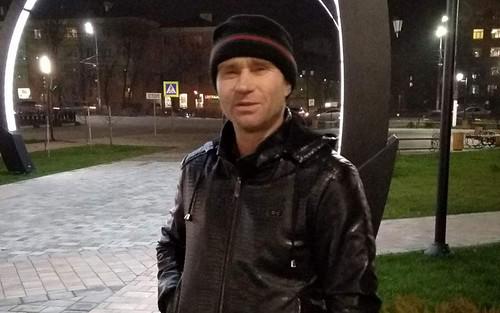
This was not the first term of the future “billionaire”. By that time, Kostyukevich had already been repeatedly convicted of theft. And subsequently, he will also be in trouble more than once – from brawls in the police station to covering up a murder. As a rule, alcohol intoxication was a companion of Kostyukevich’s adventures. In this state, he is “hot-tempered, aggressive, commits rash acts, is prone to committing administrative offenses and crimes,” testified a local district police officer in the Gainsky District Court, who in 2015 considered the case of Kostyukevich stealing money from the pocket of his drinking companion’s jacket. Kostyukevich graduated from the 8th grade of the school, was usually listed as unemployed and was registered with a psychiatrist at the Gainskaya Central District Hospital with a diagnosis of mental retardation, follows from court documents discovered by the Project. Judging by social networks, Kostyukevich has quite a few relatives in Gainy, but they all prefer to deny knowing him. Only one interlocutor mentioned that he “somewhere since 2019” moved to Moscow. The fact that Kostyukevich at least wanted to go to Moscow can also be seen on his social networks, though not in the sense of interest in the expensive cement business. In the most informative of his three accounts on Vkontakte, the “billionaire” has now been deleted, he was subscribed to groups about finding work in the capital and about the news of Domodedovo near Moscow, and in November 2021 he announced in his profile that he wanted to get acquainted with the “girl of the Maskovo region”.
Whether Kostyukevich really moved to the capital is unknown. His Telegram account, linked to the number that Kostyukevich indicated when applying for a passport upon reaching his 45th birthday, was last online on July 19, 2022. The number itself is not available for calls. After 10 days, his name thundered throughout the country. On July 29, Russian Forbes released an interview with Kostyukevich, in which a brawler from the Perm hinterland presented himself as a portfolio investor with many years of experience in construction, and reported a sensation: in the near future he would become the owner of Holcim’s Russian assets.

The effect was “catastrophic,” recalls a Holcim employee: the news about the new owner spread through the media and sowed panic among the partners, customers and employees of the holding. Holcim issued a rebuttal in which he criticized Forbes and Kostyukevich, who was promoted by him. The interview of the Perm businessman was published on the Forbes website with the note “information support”, that is, on a commercial basis. As a rule, such materials are published without a serious fact check. After Holcim’s attacks, Forbes decided to look into the situation. It turned out that Kostyukevich himself did not mind explaining himself. Moreover, I am ready to do it in the format of a video interview in order to dispel doubts about my adequacy. A promising topic went to the author of this text, then working in the editorial office of Forbes. At that moment, few could have imagined how this investigation would end for all its participants.
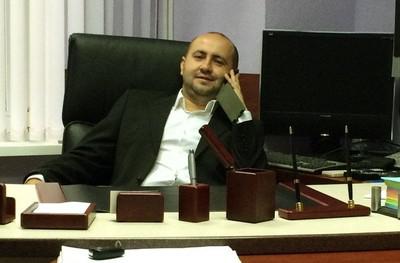
Why was Tsygankov so scared? The fact is that through him, Rondana is also connected with the Russian company Belspetsstroy, the first in this chain of legal entities that is directly related to cement. Belspetsstroy builds and strengthens tunnels and foundations of buildings, among its projects is the reconstruction of the Moscow Kremlin, the Mausoleum, participation in the construction of the Moscow and Nizhny Novgorod metro. The company has three co-owners – OPK and two graduates of the Grozny Oil Institute – the titled Chechen boxer Ramzan Sebiev and a long-term cement specialist Igor Kharchenko, at least as of September 14, 2021. The latter plays a major role in Belspetsstroy’s business, says its counterparty.
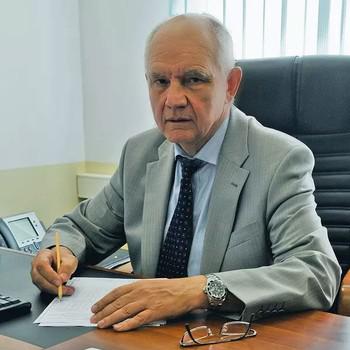
Kharchenko, 70, has been working in cement all his life. Interest grew from science – the businessman at various times worked and taught at the Grozny Oil Institute, Weimar University of Architecture and Civil Engineering, NRU MGSU, NRU HSE, MIIT, has the academic title of professor and is a doctor of technical sciences, and in the 90s he got on commercial rails – first Kharchenko built buildings in the Far North (where he met Ostryagin), and then throughout Russia: the partners were the structures of the Moscow Industrial Bank, which was controlled by the Chechen banker and holder of the Order of Kadyrov Abubakar Arsamakov. Now these projects are bankrupt or liquidated, and Belspetsstroy has become their successor. Kharchenko is primarily a scientist, says his colleague from the scientific community, and his 46-year-old son Alexei is in charge of business.
But even in tandem with their son and with the support of the Chechen diaspora, the resource of the Kharchenko family is hardly sufficient to organize an attack on Holcim, two of the Project’s interlocutors from the construction industry doubt. However, the Kharchenko family also has more powerful allies.
“A modern metropolis, especially one like Moscow, cannot develop only up and down. Our city must also develop underground,” Igor Kharchenko explained to a RIA Novosti correspondent in 2014. At the time of the interview, the cement specialist held a position at Mosinzhproekt. Until recently, a design institute, 100% owned by the Moscow government, installed sewers. But in 2013, Mosinzhproekt received a golden rain: it received a contract worth 564 billion rubles for the construction of new metro stations.
Kharchenko got a job at Mosinzhproekt a year before the landmark contract and worked until 2018 – it is noteworthy that later Kharchenko called his Belarusian company Mosinzhproekt, through which he owns Belspetsstroy. During this time, the design institute has become a mega-operator of the entire Moscow construction complex. The initiator of the creation of the state giant was the ex-Minister of Construction of Tatarstan Marat Khusnullin, who in 2010 headed the construction complex in Moscow and announced a course towards accelerated construction of the metro. The vice-mayor appointed a longtime acquaintance from Tatarstan, Konstantin Matveev, as the head of Mosinzhproekt. Subsequently, representatives of the construction industry of Tatarstan occupied almost all key positions in the capital’s construction complex, and the metro builders called the institute Khusnullin’s “favorite toy”. In 2020, Khusnullin moved to the chair of the Deputy Prime Minister of Russia, who is responsible for construction on the scale of the entire country, and not only ours – it was Khusnullin who was instructed to restore the Ukrainian Mariupol destroyed by the Russian army. The same city from which the fake owner of Russian assets Holcim seemed to get in touch.

Kharchenko is connected with Khusnullin not only by work at Mosinzhproekt: companies were involved in construction projects subordinate to the vice-mayor, which follows from the track records from the websites of firms and their litigation and Kharchenko’s development, in particular, Kharchenko’s company Research Center for Underground structures” (NIC PS) owns the trademarks for the Aquabinder and Super-jet technologies, which are used in the Moscow metro construction. Khusnullin himself spoke about the use of Aquabinder. And Kharchenko himself had direct access to Khusnullin, sitting on the Scientific and Technical Council for Urban Planning Policy in Moscow, which was headed by the current Deputy Prime Minister.
In addition, Kharchenko’s business partners NIC PS include two people from Mosinzhproekt at once – ex-chief engineer of the institute Nikolai Babushkin and ex-director of metro design Alexander Piskunov. The latter, like Khusnullin, bears the title of Honored Builder of Tatarstan and, according to two metro builders, is considered a member of his team.
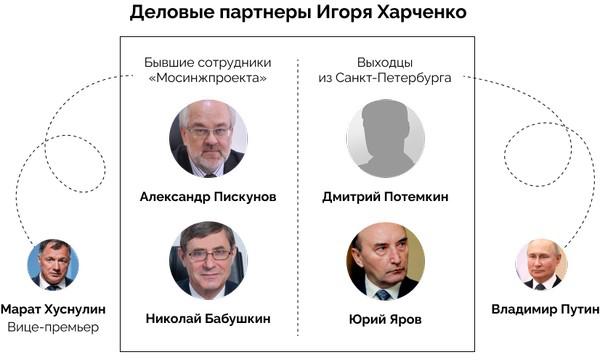
“We are all on the team. Marat Khusnullin. And that includes me,” Babushkin told the Project, who, according to his own assessment, “has built more than half of the Moscow metro.” At the same time, Babushkin noted that he had worked at the NRC PS for less than a month and had not been a member of its board of directors for a long time: “If they count me, it’s their problem.” “I never say anything on the phone,” Piskunov answered the call and offered to “meet, look into each other’s eyes and understand what it is about.”
In Kharchenko’s team, in particular, on the board of directors of his company NITs PS, there are also people with connections and people close to Vladimir Putin. First of all, this is Yuri Yarov, a native of the St. Petersburg politics of the perestroika period – in 1989 he headed the Leningrad Executive Committee, where he worked as his deputy Victor Zubkov, the future prime minister of the Putin era. Yarov also did not get lost under Putin – for some time he headed the United Shipbuilding Corporation, created by presidential decree. Another person in Kharchenko’s entourage is Dmitry Potemkin, a former customs officer who, together with Putin, organized a free customs zone in St. business contacts with Andrey Likhachev, a top manager of a number of energy and construction companies close to German Gref and Anatoly Chubais. Yarov bluntly told the Project that he was invited to Kharchenko’s business for the sake of connections. According to Yarov, his administrative resources were needed only once – to organize a meeting with a certain deputy in Moscow. Yarov refused to give his name. As well as discussing a joint business with Kharchenko – referring to his ignorance. Babushkin and Piskunov did the same. It was not possible to contact Potemkin.
It turns out that behind the “theater of the absurd” with “Kostyukevich” in the lead role are people with serious connections, from Khusnullin’s entourage to Putin’s old acquaintances. But are these all the connections of a fictional Permian billionaire? It turned out not.
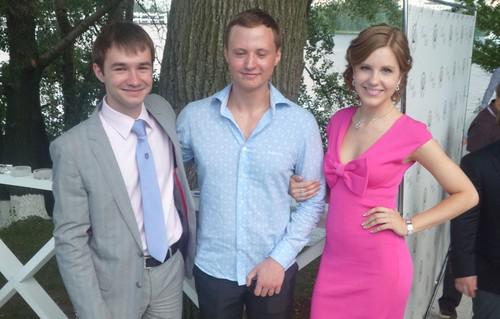
On the other hand, Zelenin is closely associated with the consulting company RBS, which was created in 2012 by a group of his classmates – including Zelenin’s wife, and he himself was a partner in the law firm. Following Zelenin, the structures associated with RBS are closely intertwined with the business of Kharchenko and his partners. Here are just a few examples: “S-Property” of RBS managing partner Alexei Merkulov acquired from bankruptcy auction the premises claimed by “Gorgeostroy” of Kharchenko’s son, now a number of companies associated with Kharchenko and RBS are “registered” there; Pavel Rusetsky, another managing partner of RBS, founded Spetsstroyproekt together with Alexander Piskunov in 2020.
“We position ourselves as a company that needs to be approached with difficult tasks, come with hopeless situations that require non-standard solutions. Such scenarios are the most interesting for us,” said Ashot Seropyan, one of the founders of RBS. The main focus of RBS is legal support of transactions. One of them was purchase businessman Magomed Musaev Russian version of Forbes magazine summer 2018.

RBS came “clearly on a deal”, Musaev had not worked with them before – before cooperating with Musaev, RBS partners worked with another Dagestan businessman, Ziyavudin Magomedov, who has been under arrest in 2018 in the case of embezzlement of 11 billion rubles – says an acquaintance of the businessman. Musaev himself declined to comment for this article. According to him, Musaev “was satisfied with RBS” and cooperation continued: lawyers began to represent the interests of the magazine in courts and regularly appeared on the pages of the publication – the Russian Forbes posted more than a dozen materials mentioning RBS, the company even has its own blog on the magazine’s website.
Musaev’s main contact at RBS was the company’s managing partner, Anatoly Shashkin, says an acquaintance of the owner of Forbes. According to three sources in the editorial office, it was Shashkin who suggested placing a paid interview with Kostyukevich in Forbes.

Musaev himself also has some connections with Kharchenko’s business. Several of their companies – two of Musaev’s companies and four structures associated with Kharchenko – are registered in the same premises, a 100% subsidiary of Belspetsstroy until recently belonged to Musaev’s wife, Zaira Abdulatipova, and Kharchenko’s son’s company owes Musaev’s company 4.5 million rubles. under a certain license agreement from 2019, follows from the court materials studied by the Project.
It looks as if the people who attacked Holcim are connected not only with Deputy Prime Minister for Construction Khusnullin, but also with the owner of Forbes. Musayev’s acquaintance denies this. According to him, the businessman is not familiar with Kharchenko, and their structures intersected because of Shashkin, who allegedly “abused the trust” of Musaev. According to Musaev’s friend, everything looked like this: Musaev instructed Shashkin to deal with his personal projects in Russia, since he himself rarely visits the country. One of the tasks was to register several legal entities. Shashkin himself chose their address of “registration”, as well as the buyer for one of the firms (it belonged to Musaev’s wife), when it was required. Musaev knew nothing about the relationship with the firm of Kharchenko’s son and suspects that this is also Shashkin’s initiative.
RBS reported that Kostyukevich and its partners are not their clients and none of the company’s representatives, in particular Shashkin, did not communicate with them. Questions about connections with Kharchenko were ignored at RBS, citing the fact that a conversation with the “undesirable organization” Project “” supposedly could have legal consequences for them. After the “Project” request was sent to RBS, the names of the members of its team were immediately removed from the company’s website. Shashkin himself, in response to a request from the “Project”, only quoted the official response of his company.
“What’s the problem? Everything seems to be going on as usual there,” Kharchenko was surprised at the questions of the Project journalist about the attack on Holcim. After some confusion, the cement specialist stated that neither Belspetsstroy nor he personally had anything to do with this, and refused to answer other questions: “I am only interested in construction activities. Nothing else interests. I have nothing to talk about with you.”
The Russian Forbes reported that during the preparation of the article between its author and the editor-in-chief of the publication Nikolai Mazurin, “disagreements arose regarding the interpretation of the events that led to the appearance of an interview with Kostyukevich on the Forbes website.” “The editor-in-chief was afraid that based on the sequence of facts given by the author, the reader might get a picture far from reality,” Forbes said in a response. Now the magazine would be ready to publish an article about Kharchenko and Kostyukevich, according to the Forbes response. The magazine, however, refused to publish material jointly with the Proekt – “there may be negative legal consequences, since the Proekt is an undesirable organization,” the magazine said in response to a request from the Proekt.
What about Holcim? There was no need to wait for help from the global headquarters, an employee of the holding recalls: European regulators could misinterpret work with assets in Russia. The local representative office had to act independently: complain to regional administrations, federal departments, the prosecutor’s office, the Ministry of Internal Affairs and the FSB. The company is also challenging the decision of the Grozny District Court and asked the Moscow Arbitration Court to recognize the debt assignment agreement, on which Kostyukevich’s claims were based, not concluded. As part of this lawsuit, Holcim achieved a temporary judicial blocking of any actions with the Russian legal entities of the holding. “Now we feel much more confident, we are not afraid that someone will re-register something behind our back,” an employee of the Russian representative office of Holcim is encouraging.
However, this is clearly not the end of the story. In the last two weeks, five unknown companies at once filed claims against the Russian subsidiary of Holcim for a total amount of 2.2 billion rubles. As with Rondana, Holcim said they never had any relationship with the plaintiffs. The new opponents of Holcim have a common feature – their shareholders are all Kostyukevich’s fellow countrymen from Perm. And at least four of them had problems with the law, according to databases “leaked” to the network – three have a criminal record and appear on the black lists of banks as drug addicts, another was on the federal wanted list for draft evasion. The owner of one of the plaintiffs, Centorion LLC, which on September 28 filed a claim for 451 million rubles against Holsim (RUS) Building Materials in the Arbitration Court of the Irkutsk Region, Rodion Loginov learned about the lawsuit of his company from the journalist of the Project and was very surprised: according to him, the company was closed “for six months exactly.” In a conversation with the “Project” Loginov admitted that he opened and closed the company not personally, but through some lawyers. Loginov refused to name them. The owners of the other plaintiff companies did not respond to the calls and messages of the “Project” in instant messengers and social networks.
The deepfake communication session ended abruptly after a request to provide any contact capable of confirming at least a few facts from the fictitious biography of “Kostyukevich”. The Internet went down, Kostyukevich explained in the messenger. After an hour that Kostyukevich allegedly spent unsuccessfully trying to connect, the deepfake gave up and offered to meet in Moscow in person. This was the last thing the journalist heard from Kostyukevich. Now his number is unavailable. The interview with “Kostyukevich” left a depressing impression, which intensified after it turned out that on the Internet you can find photos of Kostyukevich in the same shirt and with the same background that was used for the deepfake. It looked as if the organizers of the scam filmed Kostyukevich in advance in order to stock up on his photographs in “cabinet style.” How a native of the village of Gaina got involved in this story and how it ended for him is a mystery. In order to somehow clarify the situation, we turned to the Ministry of Internal Affairs with a request to find the real Kostyukevich. A few days later, Evgeny Grashkin, deputy head of the department of the Main Directorate of Criminal Investigation of the Ministry of Internal Affairs (GUUR MVD), listened to Kostyukevich’s story with interest and promised to conduct an investigation. True, the journalist will not know about its results, since Kostyukevich is a “third party”, and not a relative, Grashkin noted. In an official response, the Main Directorate of Criminal Investigation of the Ministry of Internal Affairs reported that in order to search for Kostyukevich, “you must personally contact the nearest division of the internal affairs bodies, presenting identification documents.”
Holcim: information about Kostyukevich’s purchase of “Holsim Russia” is invalid, the assignment agreement is a forgery
The original of this material
© Forbes.ru07/29/2022, Businessman Evgeny Kostyukevich called himself the new owner of Holcim in Russia
According to Kostyukevich, he and his partners have been negotiating the purchase of part of the assets with the Western shareholders of the Lafargeholcim group since 2021 and agreed on everything. But after the start of Russia’s “special operation” in Ukraine, the owners of the company stopped communicating, so Kostyukevich was forced to go to court. Holcim representatives say there was no deal
To avoid incorrect quoting, the Forbes editors draw the attention of readers: we do not claim that Mr. Evgeny Kostyukevich has become the new owner of Holcim in Russia. We tell that he declared himself as such, and we state the circumstances of the case.
On July 26, the Russian division of the building materials manufacturer Holcim issued a statement that spoke of an attempt to seize its assets. The document stated that certain legal entities had submitted applications to the regional divisions of the Federal Tax Service in order to change the composition of the participants in two legal entities that are part of the Holsim Russia group.
As Forbes found out, businessman Yevgeny Kostyukevich, who calls himself the new owner of the company, and his partners entered into a lawsuit with Holcim. On June 28, the court ruled that 100% of the shares in the companies of the Russian division of Holcim are transferred from the German Holcim AuslandbeteiligungsGmbH (Germany) to Evgeny Iosifovich Kostyukevich. The basis is the assignment agreement dated January 17, 2022, when Holcim AuslandbeteiligungsGmbH transferred to Kostyukevich the rights of claim under a loan agreement in the amount of 11.1 billion rubles issued by the German shareholder Holcim Auslandbeteiligungs GmbH to the Russian Holcim (Rus) SM LLC.
In a conversation with Forbes, a representative of the Russian Holcim, Elena Tonkova, said that “the document is forged”, and Holcim received the decision of the Leninsky Court of Grozny only from a Forbes correspondent.
Holcim is a major manufacturer of building materials, the group includes several cement plants in the Kaluga, Moscow, Saratov regions, quarries in Karelia, and so on. According to SPARK-Interfax, the revenue of Kholsim (Rus) SM LLC in 2021 amounted to 17.6 billion rubles.
Referring to the wave of informational negativity, Kostyukevich in an interview with Forbes refused to disclose the name of the group of companies. According to him, the group of companies controlled by him and his partners includes several house-building plants and other enterprises producing building materials in the Central, North-Western and Ural federal districts. The Group builds infrastructure facilities and economy-class housing. In 2021, the management revenue of all companies in the group, according to Kostyukevich, amounted to 45 billion rubles. “Because of the pandemic, there was a recession,” says Yevgeny Kostyukevich. Kostyukevich has three partners. One of them is from the banking sector, the second is a financier, the third is a production builder.
According to Kostyukevich, he and his partners have been in talks with the Western owners of Holcim since 2021. The complexly structured transaction involved the transfer of part of the Russian assets of the Lafargeholcim group under the control of the Russian side. “According to our data, the value of the group of companies in Russia as of November 30, 21 was about 114.18 billion rubles, taking into account the debt burden,” comments Kostyukevich.
Russia’s “special military operation” in Ukraine affected the negotiations. “The deal was in the process when, at the end of February, the Western partners abruptly changed their attitude towards it and stopped communicating. There is simply no dialogue,” says Kostyukevich. At the same time, at the time of the freezing of negotiations, Kostyukevich and his partners allegedly made “financial steps” in the amount of over 1 billion rubles. A Holcim spokesperson says he is not aware of any transactions.
Kostyukevich and his partners went to court. “There is a legal opportunity to claim all the assets, not a part,” says Yevgeny Kostyukevich. This possibility was included in the contract. Not that I’m claiming the rest of the assets for free. I will have additional obligations that I will fulfill.”
The representative of the Russian Holcim, Elena Tonkova, told Forbes that the information about Kostyukevich’s purchase of Holcim Russia is not true. According to Kostyukevich, the cession agreement referred to by the Leninsky Court of the city of Grozny was signed by Mr. Jan Jenisch, who is now the CEO of global Holcim. Forbes, through its Russian office, sent him a request for comments, but no comments were provided at the time of publication. The representative of the Russian Holcim does not agree with the decision of the Leninsky court and considers it and the cession agreement fictitious.
Now the tax service has suspended registration activities in connection with an additional check. Kostyukevich says he is patiently waiting for the tax authorities to sort out the situation.
*According to the requirement of Roskomnadzor, when preparing materials on a special operation in eastern Ukraine, all Russian media are required to use information only from official sources of the Russian Federation. We cannot publish materials in which the ongoing operation is called an “attack”, “invasion” or “declaration of war”, unless it is a direct quote (Article 57 of the Federal Law on the Media). In case of violation of the requirement, the media may be fined 5 million rubles, and the publication may also be blocked.








